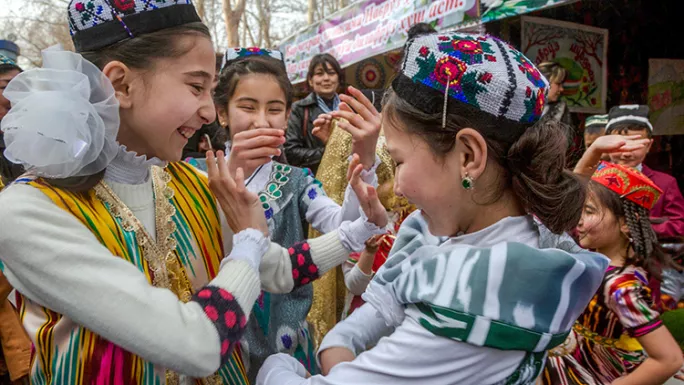- Home
- A day in the teaching life of...Hamadony Muzafarov
A day in the teaching life of...Hamadony Muzafarov

When I left my remote village to attend college in Dushanbe, Tajikistan, I dreamed of becoming an English teacher in Tajik villages. But when I started teaching, I had significant problems with local attitudes: local men told me that it’s better if their wives are uneducated so that they won’t be able to talk back or challenge them, even in the case of physical violence.
Realising the severity of the problem, I dedicated my work to women’s education in this difficult climate. Slowly, I’ve changed local attitudes: first ensuring that girls can complete high school and eventually, in 2014, integrating classrooms, so that boys and girls could learn together. English is key to female empowerment - in Tajikistan, knowledge of the language is necessary to attend university.
Mastering the English language can open a student’s mind and allow them to exchange ideas, opinions and cultural views. Similarly, it plays a great role in intercultural relationships and increases opportunities for the future. It will allow students to pursue higher education, apply for scholarships abroad, and it increases their employment opportunities.
To reach these goals, I ran my own language centre, Dunyoi Donish, from 2006 to 2016 and taught in local schools. Since 2010, I have worked in partnership with the US Embassy in Tajikistan to teach the English Access Micro-Scholarship Programme, which is targeted at children from low-income families.
Until 2014, the male and female students who were accepted on the programme were separated from 10 to 14-years-old until I started mixing them. Throughout the year, I facilitate a girl’s empowerment club. Every summer, I run a summer leadership Program and organize a free summer English club for children which teaches English and leadership.
My passion for empowering local girls, sharing the benefits of knowing English, and making children excited about learning, drives my desire to teach. Even in this remote corner of Tajikistan, it’s important to inspire and educate the future leaders of our world and all of its individual communities. I strive to create a safe and friendly learning environment inside the classroom, and outside of the classroom I plan activities where students can encourage and empower other students.

At times, it’s been an uphill battle. I fight daily in a traditional society where it is challenging for girls to reach even secondary school. Tajik girls in rural areas are often pulled out of school as teenagers and forced into marriages. I’ve worked with girls from rural and underprivileged backgrounds by building trust with parents when I launched an all-girls group.
Once I won trust in the community, I started gradually mixing girls with boys to foster gender balance in my classroom. My first female students have become “trailblazers” in the community, have confidence, and share their knowledge with other girls in the villages. They have learned English so well that they have become competitive for highly sought-after slots in American exchange programmes.
In 2015, I created a leadership development club for girls where 100 schoolgirls attended seminars on women’s rights, gender issues, parenting, environment, sewing, debate and peer training. The project included speakers who came to discuss the importance of education and disadvantages of child marriage.
In the Rasht region, war has damaged the quality of education. The remote locale of my district reduces opportunities for low-income citizens to receive a proper education. Female attendance in my region has been historically low because many families think education for girls is useless. This situation presents a unique set of challenges for any educator.
In 2010, the US Embassy provided me with funds for a pilot programme that encourages talented female students to study English. All the girls applied to institutions of higher learning to become English teachers, physicians, or other professionals.
Two of them were the first in their village to go to the US with exchange programmes, the first from their village. One of them, Madina, was one of my private students. After studying in the US, she became a teacher in Dushanbe.
She’s a clear success story. One of the judges of the Teaching Changes Lives competition at Oxford University even commented: “If we need proof that teaching changes lives, [Madina’s story shows] beyond doubt the power of education.”
The importance of teaching female students in a conservative society has been groundbreaking. So many girls regularly attend my classes and I have no doubt that all will be successful.
Hamadony Muzafarov is an EFL teacher, ambassador at TeachSDGs and runs a University Prep Club for Girls
Keep reading for just £1 per month
You've reached your limit of free articles this month. Subscribe for £1 per month for three months and get:
- Unlimited access to all Tes magazine content
- Exclusive subscriber-only stories
- Award-winning email newsletters